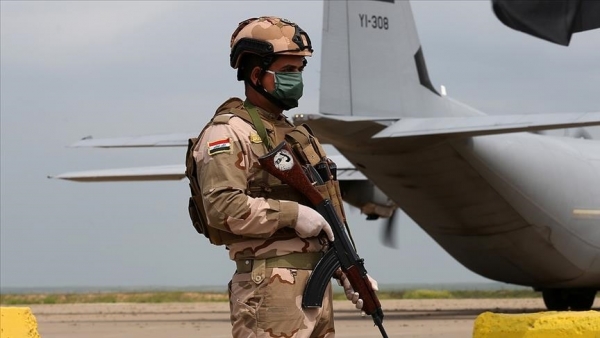On 31 May, the International Crisis Group (ICG) published an updated report concerning the situation in the District of Sinjar in Iraq. The analysis focuses on the conflict that afflicts the area and the consequences of it on the local population: the lack of public services, the inadequacy of the local government to govern the area and the slow progress of reconstruction. Particular attention is given to the agreement made in October 2020 between the federal government in Baghdad and the Kurdish regional authority in Erbil, whose purpose was to encourage displaced people to come back home and restructure the governance. The report is developed as follows: firstly, a short summary of the history and geography of the district is outlined; secondly, it described the ISIS defeat in 2014 with the support of the US Army; thirdly, it describes the Sinjar Agreement of 2020 and its main points; finally, it delineates some conclusions with possible solutions.
Concerning the geography of the district, Sinjar is in the northern part of Iraq, 120km west of Mosul, the capital of the Ninewa governorate, bordering Syria. The population of the area is extremely diverse, with communities of Sunni Muslim Arabs, Sunni Kurds, Assyrian Christians, and a small number of Shiite Arabs. For the 2005 Iraqi constitution, the district is categorized as “disputed territories”: its status is still unresolved, but formally it fell under the control of the Kurdistan Democratic Party (KDP) in 2003.
Subsequently, in 2014, the Islamic State in Iraq and Syria (ISIS) arrived in the area, committing the worst atrocities on the civilian population of the area. The Yazidis, whom the jihadists consider heretics, were the target of a particularly strong attack: they were immediately killed by ISIS militants. They took women and girls into ISIS-controlled regions of Iraq and Syria where they were victims of sexual violence. Thousands of Yazidis are still displaced and living in camps all over northern Iraq. Overall, in all the regions of Iraq, the war on ISIS changed the balance of power; particularly, the conflict skewed in favor of Kurdistan Workers Party (PKK), which is a direct rival of the KDP. With the support of the US airpower, PKK gradually pushed ISIS back, and in 2015, ISIS was definitively expelled from the territories by PKK with its linked groups (the Syrian People’s Protection Units (YPG), and Sinjar Resistance Units (YBȘ), KDP and the US. In the two subsequent years, the Sinjar territories were controlled by the KDP, in the northeast and Sinjar town, and the PKK, in Mount Sinjar and the northwest.
However, in 2017 KDP withdraw from the area, and Turkey, which supported it during the war, lost its primary ally in Sinjar. As a consequence of this, Turkey intensified the airstrikes it had previously been carrying out on alleged PKK hideouts in northern Iraq by also attacking YBȘ sites housing PKK cadres.
Due to the continuous fighting and the violence against the population, in 2020 the UN negotiated an agreement between Baghdad and Erbil, with the aim of bringing the federal and Kurdish regional governments together to govern Sinjar, under Baghdad's overall control. However, till the present moment, only some parts of the agreement came into effect because it failed to take into consideration the perspectives of the players with power on the ground, the YBȘ and the various Hashd groups.
Currently, the situation remains highly unstable, and civilians are paying the highest price for this, most of them are displaced and the majority cannot access basic services. To enhance the situation, Baghdad and Erbil should try to increase support for the agreement among the diverse group of local armed actors; most of all, the government should designate an interim mayor to improve the services accessible to civilians and their possibility to come back home.
To know more, please read:
- https://d2071andvip0wj.cloudfront.net/235-iraq-sinjar.pdf
- https://reliefweb.int/report/iraq/iraq-stabilising-contested-district-sinjar-middle-east-report-ndeg235-31-may-2022-enar
- https://www.crisisgroup.org/middle-east-north-africa/gulf-and-arabian-peninsula/iraq/235-iraq-stabilising-contested-district-sinjar#:~:text=In%20October%202020%2C%20Baghdad%20and,would%20let%20displaced%20people%20return
by Alexia Tenneriello







